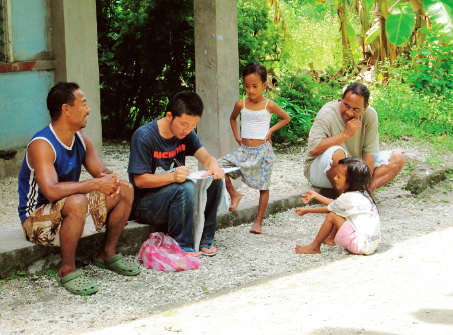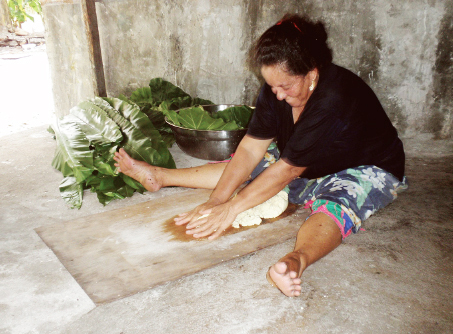Project Leader:YAMAMOTO, Sota (Research Center for the Pacific Islands, Kagoshima University)
Collaborators: NODA, Shinichi (Research Center for the Pacific Islands, Kagoshima University)
NAGASHIMA, Shunsuke(Research Center for the Pacific Islands, Kagoshima University)
KAWAI, Kei (Research Center for the Pacific Islands, Kagoshima University)
NISHIMURA, Satoru (Faculty of Law, Economics and Humanities, Kagoshima University)
SHIMIZU, Hiromu (Center for Southeast Asian Studies, Kyoto University)
Term:2011-2012
Outline of Research:
The insular regions of Southeast Asia and Oceania have a common cultural background and now face the common crisis of the collapse of traditional society and subsistence activities due to globalization and climate change. There are however, few studies surveying or comparing the two regions. This collaborative research aims to bring together the accumulation of area studies from different disciplines in the insular regions of Southeast Asia and Oceania, to discover common problems at present in the two regions, and to create networks of
researchers among these regions. The Philippines, Indonesia, and Palau, which are neighboring regions in this area, will be the sites of an initial subsistence survey.
Description:
The people in Oceania are known to have moved from Taiwan or the insular region in Southeast Asia several times more than 3000 years ago. Therefore, the insular regions of Southeast Asia and Oceania share a common cultural background. Confined to tropical islands but with a variety of ecologies, the people have developed distinctive
subsistence economics from their common bases. Moreover, the two regions now face the common crisis of the collapse of traditional society and subsistence activities due to globalization and climate change. There are, however, few studies surveying or comparing the two regions.
The Philippines, Indonesia, and Palau, which are neighboring regions in this area, are targeted as the spring board for this comparative survey. While staying at Jakarta Residence of Center for Southeast Asian Studies (CSEAS), Kyoto University, joint research between Indonesian and Japanese or Japan-based researchers will be promoted, and field surveys will also be conducted from there. Symposiums or workshops will be held to collate the accumulation of area studies in the insular regions of Southeast Asia (CSEAS) and Oceania (Center for the Pacific Islands, Kagoshima University), to bring together contributions from different disciplines, to identify common problems at present in the two regions, and to create networks of researchers among these regions. Area Studies in Southeast Asia led mainly by CSEAS will be enriched by taking in area studies in Oceania.


